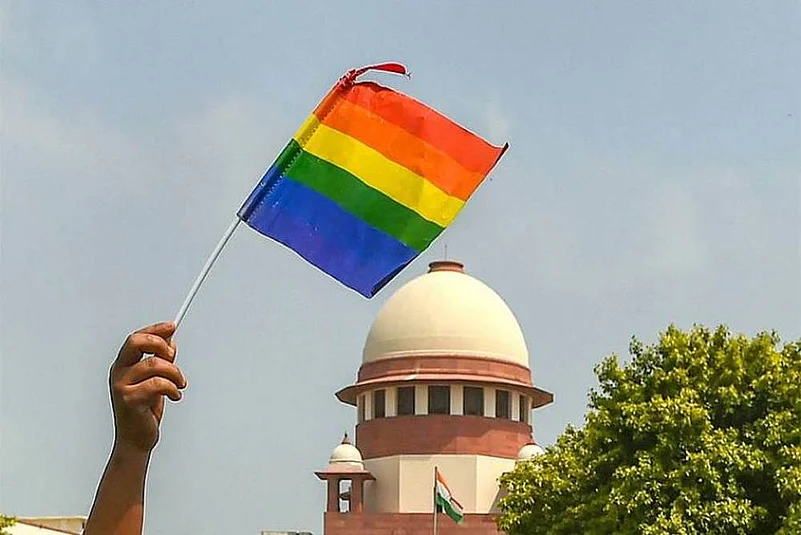Chief Justice DY Chandrachud on Thursday questioned the need for being of binary gender for marriage, asserting that same-sex relationships were "not just physical". The CJI made these remarks on the third day of hearing by the five-judge constitutional bench of the Supreme Court on a batch of pleas seeking the legalisation of same-sex marriage in India.
CJI Chandrachud, referring to the 2018 landmark judgement on decriminalising homosexuality, said that by decriminalising homosexuality, it was acknowledged that "these (same-sex) relationships are not just physical relations but something more of a stable, emotional relationship".
On Tuesday, the apex court had observed that the very notion of a man and a woman is not “an absolute based on genitals”. The Supreme Court was discussing the ambit of gender and whether it expanded beyond the biological sex of a person.
Senior advocate AM Singhvi, appearing for one of the petitioners, had said same-sex marriage was a narrow term and, if the court were to grant marriage equality to gay couples, it should be for consenting adults across "bodily gender and sex spectrum".
"There is a whole range of combinations of persons with special biological features. It is not only men and women. One category is ‘sex’ and the second category is ‘gender’,” Singhvi said.
Meanwhile, petitioners seeking legal validation for same-sex marriage have also urged the top court to use its plenary power "prestige and moral authority” to push society to acknowledge such a union as would ensure LGBTQIA persons lead a “dignified” life, like heterosexuals, as they have no representation in Parliament.





















.png?w=200&auto=format%2Ccompress&fit=max)




